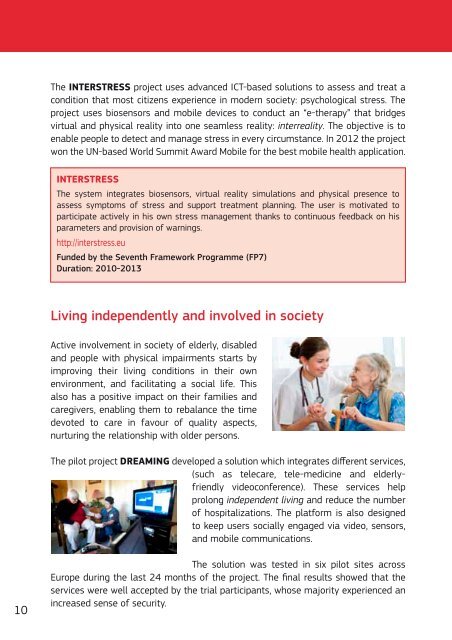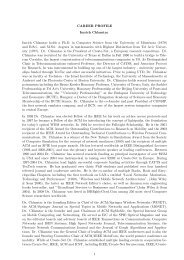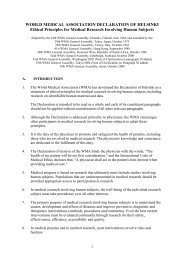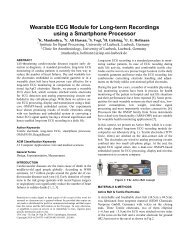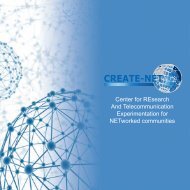ICT for Societal Challenges - European Commission - Europa
ICT for Societal Challenges - European Commission - Europa
ICT for Societal Challenges - European Commission - Europa
You also want an ePaper? Increase the reach of your titles
YUMPU automatically turns print PDFs into web optimized ePapers that Google loves.
The INTERSTRESS project uses advanced <strong>ICT</strong>-based solutions to assess and treat a<br />
condition that most citizens experience in modern society: psychological stress. The<br />
project uses biosensors and mobile devices to conduct an “e-therapy” that bridges<br />
virtual and physical reality into one seamless reality: interreality. The objective is to<br />
enable people to detect and manage stress in every circumstance. In 2012 the project<br />
won the UN-based World Summit Award Mobile <strong>for</strong> the best mobile health application.<br />
INTERSTRESS<br />
The system integrates biosensors, virtual reality simulations and physical presence to<br />
assess symptoms of stress and support treatment planning. The user is motivated to<br />
participate actively in his own stress management thanks to continuous feedback on his<br />
parameters and provision of warnings.<br />
http://interstress.eu<br />
Funded by the Seventh Framework Programme (FP7)<br />
Duration: 2010-2013<br />
Living independently and involved in society<br />
Active involvement in society of elderly, disabled<br />
and people with physical impairments starts by<br />
improving their living conditions in their own<br />
environment, and facilitating a social life. This<br />
also has a positive impact on their families and<br />
caregivers, enabling them to rebalance the time<br />
devoted to care in favour of quality aspects,<br />
nurturing the relationship with older persons.<br />
The pilot project DREAMING developed a solution which integrates different services,<br />
(such as telecare, tele-medicine and elderlyfriendly<br />
videoconference). These services help<br />
prolong independent living and reduce the number<br />
of hospitalizations. The plat<strong>for</strong>m is also designed<br />
to keep users socially engaged via video, sensors,<br />
and mobile communications.<br />
10<br />
The solution was tested in six pilot sites across<br />
Europe during the last 24 months of the project. The final results showed that the<br />
services were well accepted by the trial participants, whose majority experienced an<br />
increased sense of security.


